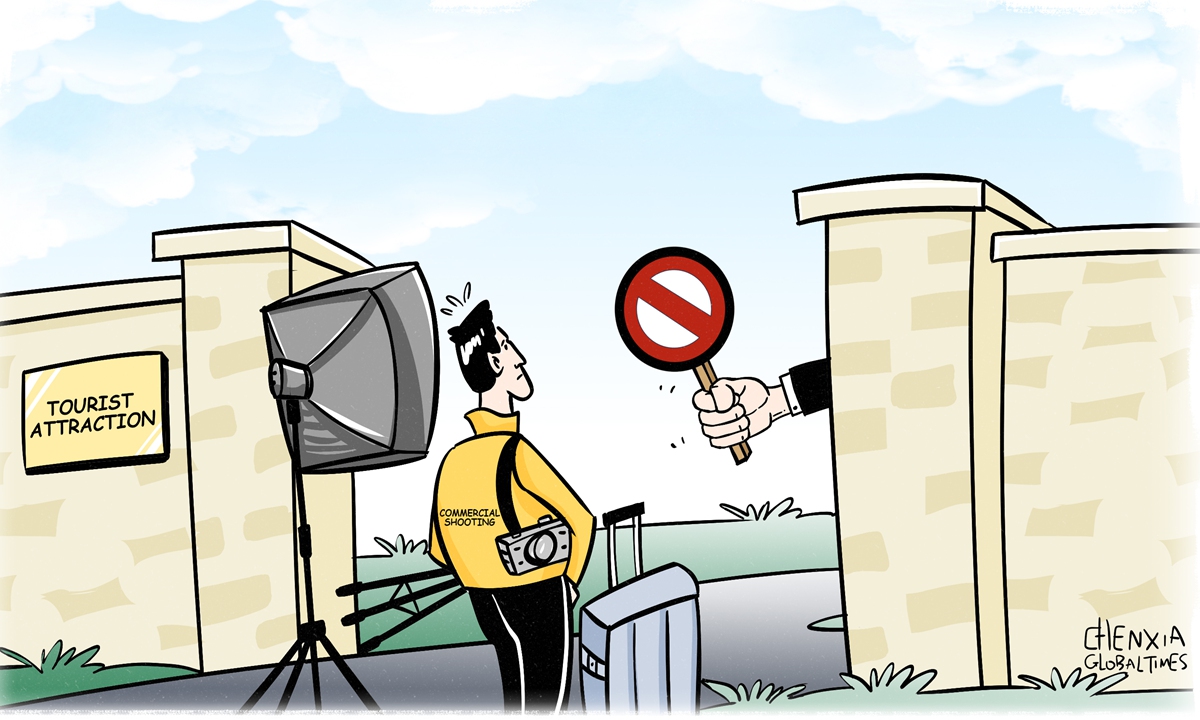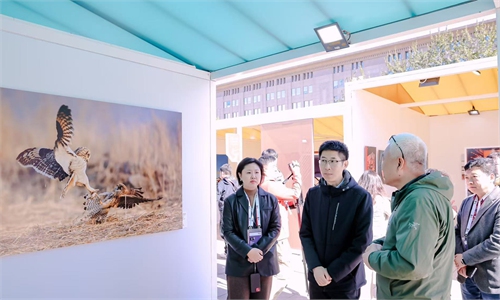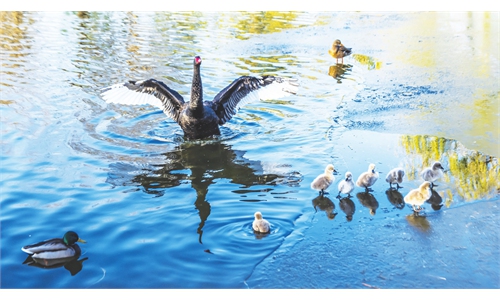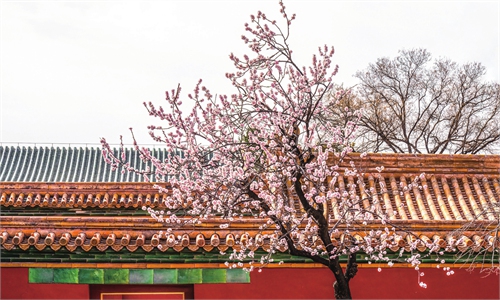ARTS / CULTURE & LEISURE
Commercial photography under regulation in some Beijing parks to improve visitor experience

Illustration: Chen Xia/GT
Recently, several popular tourist attractions in Beijing, including Beihai Park and the Temple of Heaven, have set up rules regulating "commercial photography."
This move has been praised by visitors and sparked discussions on Chinese social media about how to improve the park-visiting experience.
Staff of the Temple of Heaven said that, while commercial photography is currently prohibited, visitors wearing traditional clothing and taking photos with their own cameras are allowed, according to a report by cnr.cn on Saturday.
When it comes to distinguishing between commercial shoots and personal photography, the staff said, "Commercial photography typically involves large bags filled with props and costumes, and it often disrupts other visitors' experience and photo opportunities. If we spot such activities, we will ask the individuals to leave the park."
The new move targeting commercial photography in parks is undoubtedly a strong response to the negative impact brought by such activities. It also reflects the efforts of authorities to ensure experiences of ordinary visitors.
"Excessive commercial photography not only disrupts the experience of other visitors but may also infringe upon their rights. More importantly, unregulated commercial activities may harm the environment or cultural relics within scenic areas. The improper use of drones during shoots may poses safety risks," Sun Jiashan, an associate researcher at the Central Academy of Culture and Tourism Administration, told the Global Times on Monday.
Prohibiting such practices is essential to maintain order, protect the environment, and enhance the visitor experience, Sun said.
It is not only commercial photography teams; anyone taking photos in public spaces should adhere to the principles of proper sightseeing and photography, respecting the management regulations of the attractions.
Beihai Park has banned commercial photography teams carrying large equipment, such as supplementary lights and reflectors. These teams tend to occupy scenic spots for extended periods, disrupting other visitors' opportunities to take photos and enjoy the sights. However, the park will not restrict visitors who wish to wear traditional clothing and take photos on their own, according to a report by the Beijing Daily.
The ban has been applauded by some netizens, while others questioned how to distinguish between commercial shoots and personal photography. "Commercial photography occupies public resources at the cost of the experience of other visitors while making profit," said one Sina Weibo user.
According to the Beijing Municipal Administration Center of Parks (BMACP), disruptive commercial photography includes, but is not limited to: bringing large quantities of clothing, photography equipment, camping vehicles, and other props or vehicles into parks; occupying public spaces for extended periods for activities such as doing makeup, clothing changes, following shots, or group photo shoots; as well as other disruptive actions caused by commercial photography.
"Some tourists may hire professional photographers to capture memorable moments at scenic spots, which is understandable. The key lies in establishing boundaries," Sun added.
According to Sun, to regulate such behavior, scenic areas could explore more reasonable management approaches, such as designating specific zones for commercial photography or setting restrictions on timing and scope to accommodate the needs of different visitors.
Since June of 2023, the Palace Museum and the Beijing Working People's Cultural Palace have already halted commercial photography.
Next, BMACP said that the parks will focus on addressing disruptive commercial photography by strengthening daily supervision and inspections, promoting better park etiquette, and coordinating joint enforcement efforts. While meeting the diverse and personalized needs of visitors, they will actively explore effective measures that balance regulation and accessibility, working together to maintain a positive and orderly park experience, the Beijing Daily reported.
Wang Hui, an associate professor at the Capital University of Economics and Business, told the Beijing Daily that with the abundance of ancient buildings and large crowds at attractions like the Temple of Heaven, commercial photography can cause congestion and create safety hazards. It may also infringe on the legitimate rights of other visitors.
Therefore, it is necessary for the park to implement strict management of commercial photography. In the future, the park may consider a more refined management approach to balance various needs like granting permits or setting specific shooting areas, said Wang.
The authors are reporters with the Global Times. life@globaltimes.com.cn



